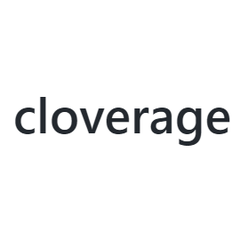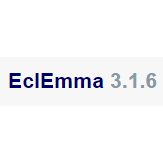
Coveralls
Coveralls empowers developers by identifying untested areas in their codebase, ensuring a more robust testing suite. With seamless integration into CI servers, it analyzes coverage data and highlights potential vulnerabilities. Users can track changes over time, fostering a culture of code quality and confidence in their deployments.
Top Coveralls Alternatives
UndercoverCI
UndercoverCI enhances Ruby code reviews by identifying untested changes in methods, classes, and blocks before deployment.
SimpleCov
A powerful code coverage analysis tool for Ruby, SimpleCov leverages Ruby's built-in Coverage library to efficiently gather and process coverage data.
OpenClover
OpenClover is a powerful code coverage tool for Java and Groovy, measuring coverage and over 20 metrics.
blanket.js
Blanket.js serves as a straightforward JavaScript code coverage library, effortlessly installable for both browser and Node.js environments.
NCover
NCover empowers developers by providing an intuitive, enterprise-class solution for tracking .NET code coverage.
cloverage
Cloverage is a user-friendly Clojure test coverage tool that integrates seamlessly with Leiningen projects.
JaCoCo
Leveraging years of experience, it ensures seamless integration with existing tools...
Coverlet
It seamlessly integrates with the Visual Studio Test Platform and enables code coverage by simply...
JCov
By offering precise measurements of method, linear block, and branch coverage, it helps developers identify...
DeepCover
It ensures that a line is marked as covered only when fully executed, and can...
Xdebug
It offers an enhanced var_dump() function, detailed stack traces, and logs function calls with arguments...
grcov
It effectively processes .profraw and .gcda files from llvm/clang or gcc, as well as lcov...
Istanbul
The nyc CLI integrates seamlessly with popular frameworks like tap, mocha, and AVA, allowing developers...
kcov
It generates lcov-style HTML reports, XML, and JSON outputs, seamlessly integrating with CI systems like...
pytest-cov
It enhances standard coverage reporting with subprocess and xdist support, ensuring accurate measurements even in...
Coveralls Review and Overview
Code coverage is essential in the journey of code from the development phase to the testing phase. It ensures that the source code is written compatible with all the test cases it supports. The system should be able to handle error situations like invalid inputs, memory issues while entering certain types of data, etc. If such problems are found out, the developer can fix them during the coding phase.
But due to the limitations of the testing environment, it is not possible to test every input. Coveralls enables them to automatically verify the code coverage and unexpected errors by using pre-defined rules. It can check code directly from cloud repositories.
Repository Coverage
It allows users to test the repository coverage of the software and the source code. Check and measure the coverage of code in all of your repositories and find out the total percentage covered and the lines of code covered during the testing. Since most of the development code is stored in repositories in the cloud, repository coverage ensures that every line of code stored in the cloud is compatible with the test scenarios.
It verifies the quality of the code and provides the percentage of accuracy according to the tests it has performed on the code.
File Coverage stats
Coveralls also provide tests and analysis of individual files in the development folder. The service analyses source data and check the code line by line and ensure the correctness. It detects missed lines, code that doesn't obey the test suite, and exceptions. Measure the hits and bugs in code, line by line, and quickly fix the issues before converting the source code into the production phase code.
It allows developers to sift through each line quickly and find out changes performed during each commit. This helps to understand what code has been changed and where it was changed.
Overview and Notifications
It provides an overview of repository coverage statistics. Also, it displays a graph of coverage percentage over time, making it easy to track the quality of code and maintain them across multiple versions and test suites. Coveralls supports sending push notifications regarding code coverage and quality via online services like Slack, Hipchat, or email and JSON webhooks.
It makes it easy for developers to be alert regarding the quality of code and test case validation. The coverage updates page shows you the coverage stats in real-time, and the feed of individual commits to each code. Accurately understand how every commit affects the code coverage.
GitHub and CI compatible
Coveralls is integrated with GitHub and CI servers and adds a code coverage status to the project's readme file. It also supports the use of GitHub API to display code coverage data when using pull requests. Also, add coverage comments to pull requests in GitHub.
Top Coveralls Features
- Code coverage visualizations
- Continuous integration support
- Unlimited coverage history
- Repository overview dashboard
- Line-by-line coverage analysis
- File-specific coverage reports
- GitHub integration notifications
- Coverage updates for pull requests
- Badges of Honor display
- Free for open-source projects
- Private repo pro accounts
- Customizable coverage thresholds
- Test suite health insights
- Integration with Bitbucket
- Integration with Gitlab
- Early issue detection
- Comprehensive trend analysis
- Seamless CI server integration
- User-friendly interface
- Detailed coverage reporting














